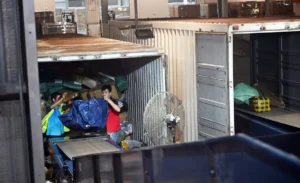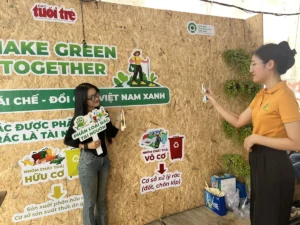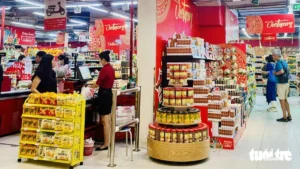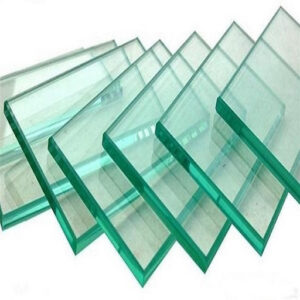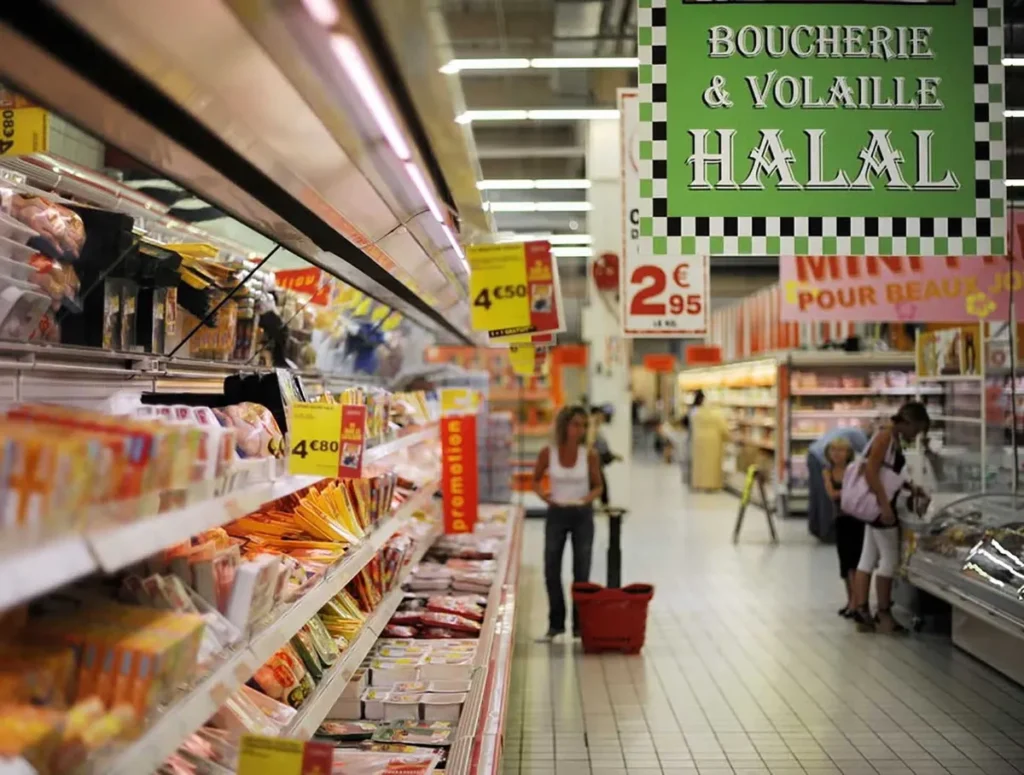Prime Minister Pham Minh Chinh’s recent visit to the three countries of UAE, Saudi Arabia and Qatar has opened up unprecedented prospects for Vietnam’s exports.
Vietnamese goods penetrate deep into the billion-dollar market
According to information from the Asia – Africa Market Department (Ministry of Industry and Trade), connecting the domestic market with the Halal market (Halal food is products that are “allowed” and “legal” to use according to Islamic law, with strict requirements from the smallest ingredients to processing and transportation) is not only an opportunity for Vietnamese enterprises to expand their business scale but also an important strategy to promote the development of domestic manufacturing industries.
Speaking at the recent conference “Promoting internal strength and enhancing international cooperation to boost the development of Vietnam’s Halal industry”, Prime Minister Pham Minh Chinh affirmed that Vietnam has many advantages to develop the Halal industry and participate more deeply in the global supply chains of Halal products and services.
Also at the conference, assessing Vietnam’s potential, Dr. Yousif S.AlHarbi, Vice President of the Saudi Arabia Halal Center, Saudi Arabia Food and Drug Authority (SFDA) said that Vietnam is emerging as a very important link in the global Halal supply chain. With its advantages, Vietnam can become a center for the production and distribution of Halal products. Cooperation between Saudi Arabia and Vietnam can create a prosperous Halal ecosystem. “The Halal market is very diverse, including products such as food, pharmaceuticals, cosmetics, fashion… Vietnam is at a golden time to seize opportunities and participating in this market is a strategic step for Vietnam, bringing Vietnam deeper integration with Halal economies”, Dr. Yousif S.AlHarbi emphasized.
Regarding this story, Ms. Nguyen Minh Phuong – Head of West Asia and Africa Department (Asia – Africa Market Department, Ministry of Industry and Trade) added that the global Halal market has a size of more than 2 billion people and recorded annual growth of up to 20 – 30%. The total global trade value of Halal products in 2022 reached about 2,300 billion USD. It is forecasted that the Halal economy could reach 7,700 billion USD by 2025 and increase to 10,000 billion USD before 2030. In particular, the Middle East region has a very large Muslim population, accounting for 25% of the world, so this is a very potential market for Vietnam’s Halal exports.
Notably, during his recent visit to the United Arab Emirates (UAE), Prime Minister Pham Minh Chinh witnessed the signing ceremony of the Vietnam-UAE Comprehensive Economic Partnership Agreement (CEPA). Accordingly, the UAE committed to eliminating tariffs as soon as the agreement takes effect for many key and potential export sectors of Vietnam. “With attractive incentives from CEPA, the door for Vietnamese Halal products to penetrate the Middle East market is wide open,” emphasized a representative of the Asia-Africa Market Department.
“However, to take advantage of the opportunity, first of all, Vietnamese enterprises need to clearly understand the commitments of the Agreement, as well as the business practices of the UAE market in particular and the Middle East in general. For this market, the requirement for Halal certification is very important. To realize the commitments in CEPA, the Ministry of Industry and Trade plans to develop a detailed plan to implement CEPA and assess the expected impacts of the Agreement on relevant entities. At the same time, the Ministry of Industry and Trade will support and enhance the competitiveness of Vietnamese industries and enterprises. Currently, many Vietnamese enterprises have grasped the information and are completing Halal licenses to export products to the Middle East,” Ms. Phuong added.
Top potential market for Vietnamese agricultural products
Over the years, Vietnam’s agriculture has made an important contribution to ensuring global food security. In 2023, Vietnam was one of the world’s leading exporters of agricultural, forestry and fishery products with a value of more than 53 billion USD, reaching nearly 47 billion USD in the first 9 months of 2024, striving to reach about 60 billion USD for the whole year. Of which, up to now, many Vietnamese agricultural products are basically suitable and fully meet Halal standards such as seafood, pepper, cashew nuts, coffee, rice, etc.
For example, the Saudi Arabian market – Vietnam’s leading trading partner in the Middle East. This is a very potential export market for Vietnamese agricultural products. By the end of the third quarter of 2024, the total bilateral trade reached more than 2.2 billion USD, an increase of 8% over the same period in 2023; of which Vietnam’s exports reached approximately 1.18 billion USD, an increase of 39% and imports reached over 1 billion USD, a decrease of 13.6%. “Currently, this market has a very large demand for imported agricultural products, especially fresh fruits and vegetables such as passion fruit, seedless lemon, green-skinned grapefruit, dragon fruit, guava, fresh coconut… As for rice, Saudi Arabia imports about 1.7 million tons of rice every year, but currently, Vietnam only exports about 35,000 tons of rice to this market each year. In addition, Saudi Arabia is also in need of importing coffee, nuts, spices, fresh seafood (such as shrimp, fish, squid and canned tuna)… from the Vietnamese market,” said Mr. Tran Trong Kim – in charge of the Vietnam Trade Office in Saudi Arabia.
According to Mr. Kim, Vietnam has great potential in supplying Halal agricultural products and food to meet the consumption needs in the Middle East in general and Saudi Arabia in particular for food products, confectionery, beverages, and cosmetics that require Halal certification. However, this market has strict regulations and clear requirements on technical standards, creating challenges for new businesses to access the market. In addition, this country is also moving towards a green, healthy life and sustainable environmental development. Organic, environmentally friendly products are beginning to be highly appreciated and are in demand in the coming time, so Vietnamese businesses need to research and produce in this direction to increase export value.
In addition, according to experts, Vietnam also has many advantages in tourism development, including Halal tourism with a coastline of more than 3,000 km, many important and diverse ecosystems and many bays and beaches considered the most beautiful in the world.
In order for Vietnam to promote its internal strength and boost international cooperation on Halal, the Prime Minister suggested that it is necessary to carry out “5 steps” to promote its internal strength and international cooperation on Halal. Firstly, promote cooperation in sharing information and experience, support Vietnam in perfecting the legal framework, state management related to Halal, perfecting the national Halal standards; provide technical support, improve capacity, train and supply human resources to meet the needs of developing the large-scale Halal industry and serving the export of Vietnam’s products and services. Secondly, promote negotiations, signing agreements, memorandums of understanding, agreements on recognition and mutual recognition of Halal certification, thereby helping Vietnamese enterprises become an important link in the global Halal food production and supply chain.
Third, promote regional and international partners to invest and do business in Vietnam in Halal-related fields, especially in agriculture, tourism, hotels, resorts, restaurants, pharmaceuticals and cosmetics, and supporting industries related to Halal (technology, production lines, logistics, etc.). Fourth, promote and advertise Vietnam’s Halal products, services and brands and open markets for Vietnam’s Halal export products. Fifth, promote people-to-people exchanges and cultural exchanges, thereby enhancing the sharing and understanding of people and businesses on both sides about each other’s strengths and potential for cooperation in developing the Halal industry in Vietnam./.


